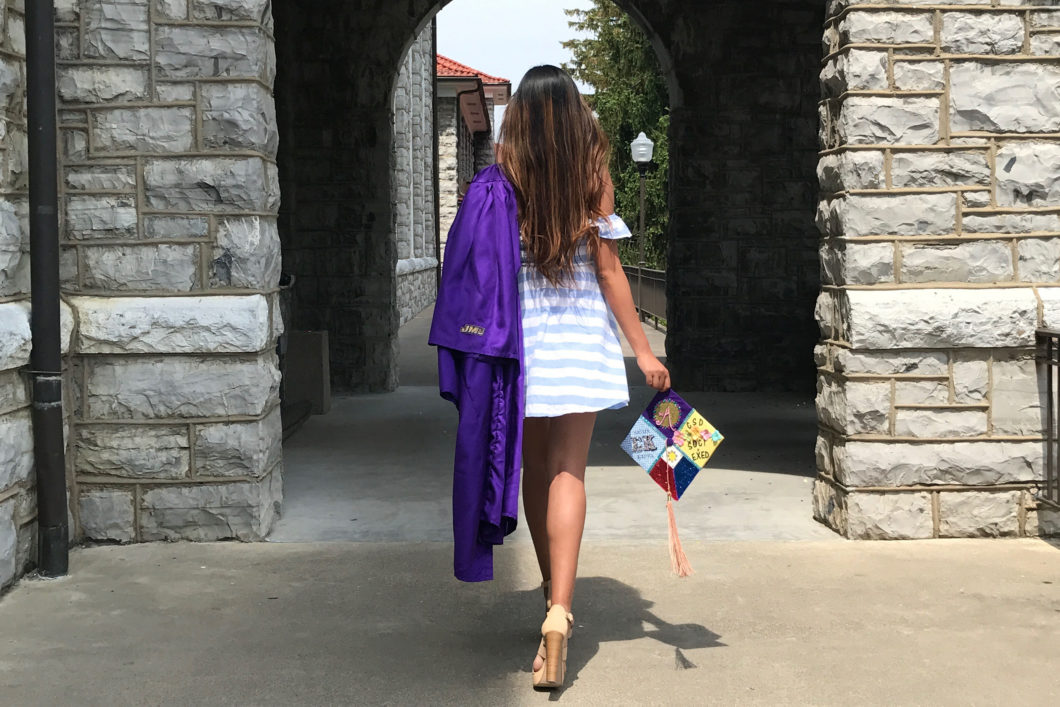“Any fool can know. The point is to understand.”
– Albert Einstein
The quote above resonates with my experience as a speech-language pathology graduate student and as a speech-language pathology assistant (SLPA). After graduating with my bachelor’s degree in communication sciences and disorders (CSD), I felt out of touch with my initial passion for speech-language pathology. I grew academically and became knowledgeable in so many aspects of the profession; however, I felt disconnected from the true essence of being an SLP.
Because of this, I decided to work as an SLPA for a few years before applying to any graduate programs. In these 4 informative years, I was given the opportunity to work as an SLPA in Arizona and Maryland—two very different environments that tested and expanded my abilities to become a better clinician.
Crossing State Lines As an SLPA
During my experience as an SLPA in Arizona, I was a private contractor who worked with a large bilingual Spanish-speaking community that encompassed a variety of ages. In addition to guidance from my SLP supervisor, I was able to learn new skills from talented professionals such as music therapists, occupational therapists (OTs), physical therapists (PTs), and applied behavior analysis (ABA) therapists—each of whom taught me a skill or two from their professions. For example, an OT taught me how to manage behaviors during speech therapy through the use of sensory input. My music therapy colleague taught me how to use songs to help my clients maintain attention and memory in therapy.
These years were transformative as I quickly learned the importance of real-world skills to utilize in intervention. Furthermore, I became proficient in additional skills such as billing and child/parent rapport-building. I hadn’t been instructed in billing codes and the ways that those codes interconnect with our SOAP notes/treatment until I started working as an SLPA. Moreover, my employment at this clinic enabled me to experience and interact with a large population of Spanish-speaking individuals within a vibrant bilingual community—this community allowed me to learn about multicultural diversity firsthand through the specific lens of speech and language. I was able to hone my soft skills—flexibility, understanding, and general rapport-building to come together with my clients to bridge our differing cultures—yielding the provision of effective treatment and successful outcomes.
My acquisition of these valuable lessons through my work as an SLPA was something that I feel I would have not been able to fully comprehend had I been simply reading from a textbook or merely listening to a lecture in the classroom. Referencing back to Einstein’s quote, I was a fool who knew all these general ideas in school—but not until I began to rack up real-world experience was I able to fully understand those ideas.
And I learned even more during my SLPA years in Maryland, where I worked at an outpatient pediatric clinic. I grew as a clinician when I began working with a variety of children whose needs and disorders were scattered across a wide spectrum of realities.
Supporting Academics with Real-World Experience
I absorbed so many new ideas and important concepts in school as an undergrad, such as the different disorders and syndromes that can co-occur with speech and language issues. However, I didn’t see the full picture until I actually experienced it for myself.
Yes, my college experience adequately equipped me with the knowledge of how to identify different disorders: But what I lacked was the experience of seeing for myself the differing ways in which those disorders present within an individual—and the human aspect of each disorder.
My classes taught me that behavioral issues may arise within individuals with autism during intervention, but it wasn’t until I began working with those individuals that I realized these behaviors were ways of communicating—that is, ways in which they communicated their needs for sensory input or their desire to avoid what they perceived as intense situations. By fully understanding and seeing the bigger picture during my work as an SLPA, it allowed me to grow as a clinician. This experience made me more confident in treatment techniques and client interaction which made me better equipped upon pursuing my master’s in SLP. My work as SLPA inspired me to take on the clinical interpretation side of the field as a graduate student now as well. I feel that this was life-changing as it made me more curious, motivated, and engaged in our field.
By working alongside real students, parents, SLPs, and other allied health professionals, I was adequately preparing myself for the intangible things that could not possibly be summarized in a class lecture. These SLPA experiences reinvigorated my love and understanding of the speech-language pathology professions and inspired me to continue my education.
This is when I decided to start the next part of my journey as a growing clinician. I applied—and got accepted—to an amazing speech-language pathology program at the University of the District of Columbia, where I’m now gaining even more knowledge to apply in the real world and make life-changing impacts on my clients.

